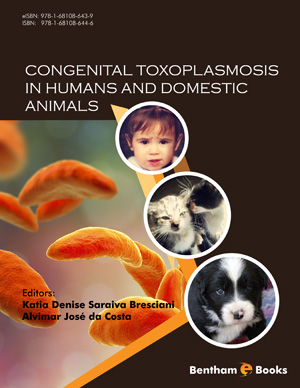Abstract
Toxoplasma gondii is a protozoan parasite distributed worldwide. It is an obligatory intracellular parasite which can infect a wide variety of vertebrates and different host cells. Usually, T. gondii infect pigs without causing any clinical signs. However, although rare, it may provoke disease, presenting fever, anorexia, depression and abortion. Pork is considered the main infection source for humans, and the risk of acquiring infection through the consumption of raw or undercooked meat, which is common in many regions, shows that the control of swine toxoplasmosis plays an important role in the epidemiology of the disease. This chapter discusses aspects related to the parasite-host relationship between T. gondii and pigs, such as epidemiology, natural (congenital) and experimental infections, diagnosis, vaccines and prevention.
Keywords: Apicomplexa, Coccidia, Congenital infection, Epidemiology, Piglets, Protozoa infection, Protozoa parasites, Swine, Tissue cysts, Toxoplasma gondii, Toxoplasmatidae, Toxoplasmosis infection, Vertical transmission.






















